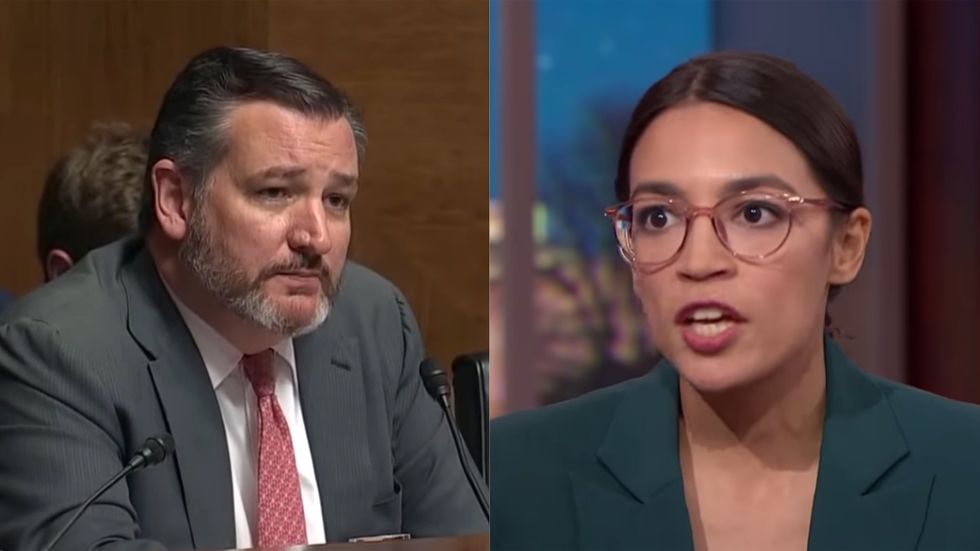Alexandria Ocasio-Cortez and Ted Cruz actually just found an issue where they agree — and they want to work on a joint bill


Two icons of the right and left wings of American politics came together Thursday afternoon with an agreement to work on an issue that could potentially cross party lines: congressional corruption.
It started when Rep. Alexandria Ocasio-Cortez (D-NY) tweeted about ex-lawmakers going into lobbying:
If you are a member of Congress + leave, you shouldn’t be allowed to turn right around&leverage your service for a… https://t.co/3AumZDKyOL— Alexandria Ocasio-Cortez (@Alexandria Ocasio-Cortez) 1559236316
Out of nowhere, Sen. Ted Cruz (R-TX) piped in with agreement:
The New York lawmaker decided to call his bluff, but Cruz indicated he was serious:
.@tedcruz if you’re serious about a clean bill, then I’m down. Let’s make a deal. If we can agree on a bill with… https://t.co/nhC6167MH5— Alexandria Ocasio-Cortez (@Alexandria Ocasio-Cortez) 1559249165
You’re on. https://t.co/S3TBfNeO3Q— Ted Cruz (@Ted Cruz) 1559250160
The possibility of actually moving on bipartisan anti-corruption legislation seems slim. Senate Majority Leader Mitch McConnell won't even move on legislation that could protect elections from foreign attacks, an idea that should be a slam dunk for bipartisanship (though it does touch a sore spot in President Donald Trump's ego). And McConnell is the person who would ultimately need convincing if Congress were actually to pass a bill, not Cruz.
There's also good reason to be suspicious of Cruz himself. He may be the least trustworthy member in Congress, and he likes glomming on to apparently populist issues even while he presses an aggressively plutocratic agenda. And one of his other big ideas for anti-corruption legislation actually cuts against this proposal. Cruz has been a proponent of term limits for Congress, which would only raise lawmakers' incentives to use their short time in office to position for jobs in the private sector — jobs which could potentially be specifically circumscribed to avoid running afoul of any restrictions on lobbying.
But in a government where cynicism is the default mode, it would be nice if Congress could move forward with efforts to restrict the influence of well-financed groups lobbying against the public interest. We'll see if it can actually happen.